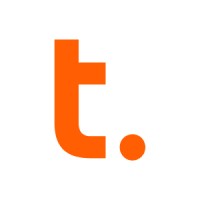Description
What You’ll Do
- Deploy and configure production security tools and services to monitor and protect cloud workloads, networks, and endpoints
- Serve as the security subject matter expect around Security Engineering topics, processes, and tools.
- Partner closely with Product and IT teams to implement cohesive security solutions across diverse computing environments
- Implement scalable processes for provisioning cloud access and maintaining least-privilege
- Problem solve and identify potential alternatives to solve challenges, explaining any trade-offs and risks effectively
- Collaborate with security leadership, architecture, compliance, and operations teams to execute on security strategies
- Assess and propose solutions regarding cloud security to leadership
- Identify and automate security processes and practices
- Maintain knowledge of emerging security threats, trends, and best practices
Who You’ll Work With
We are the Security Engineering team within a global Information Security Organization made up of Senior Security Engineer professionals collaborating with other internal and external stakeholders (IT, Compliance, Product Engineering, Global Operations, and Customer Support). The ideal candidate will have experience navigating complex situations managing cross functional initiatives spanning across the entire Company. This position reports to the Manager of Security Engineering.
What Makes You a Qualified Candidate
- MS/BS degree in Electrical Engineering, Computer Science, Information Technology, or related field. Advanced degree highly preferred
What You’ll Bring
- A deep understanding of cloud, network, and infrastructure security
- Knowledge how to secure solutions in complex hybrid cloud enterprise and SaaS environment(s)
- Ability to implement security best practices in partnership with development teams and systems owners
- Familiarity with one or more cloud environments such as AWS, Azure, and/or GCP and their security offerings
- Understand Infrastructure as Code (IaC) languages, such as, Terraform, CloudFormation, Helm, Ansible, etc.
- Ability to automate tasks using Powershell, Python, Bash, or Go
- An understanding of one or more programming languages such as Python, Powershell, Bash, etc.
- Ability to understand and implement secure architectural design patterns in the cloud
- Knowledge of security best practices and common security frameworks such as NIST, ISO, Common Criteria, OWASP, etc.
- Ability to communicate effectively with business representatives in explaining security topics and requirements/risks clearly to stakeholders from engineering to senior leadership
- Ability to document deployment diagrams and operational run books
- An understanding of compliance requirements such as FedRAMP, PCI-DSS, HIPAA
Key Skills
Education
Any Graduate
- Posted On: 08-Dec-2024
- Experience: 5+ years of experience
- Openings: 2
- Category: Cloud Security Engineer
- Tenure: Flexible Position

